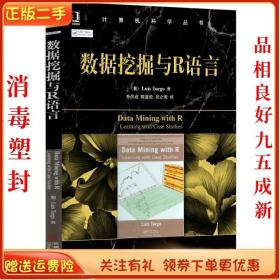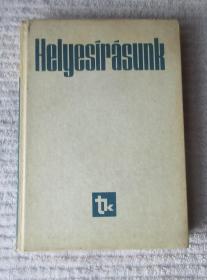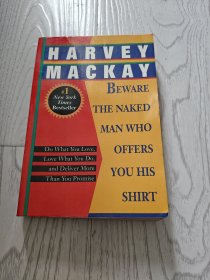
Ľubomír Feldek: Slovák na Mesiaci (Slovák na Mesiaci / A Slovak on the Moon )戏剧 【捷克语 精装 签名本】
¥ 160 八五品
仅1件
作者Ľubomír Feldek
出版社不详
出版时间1986
装帧精装
尺寸19.6 × 12.5 cm
页数76页
正文语种捷克语
上书时间2019-05-13
- 最新上架
商品详情
- 品相描述:八五品
- 商品描述
-
Kniha kratších i rozsiahlejších básní moderného štýlu pojednávajúca hlavne o každodenných starostiach dneštného sveta a dneštného človeka. Feldek ironizuje a napáda dneštnú postmodernú spoločnosť a svojím sposobom ho paroduje. Snaží sa o vykreslenie situácie pomocou básnického videnia a poučuje čitateľa o tých pravých hodnotách...
Narodil sa 9. októbra 1936 v Žiline. Študoval slovenčinu na Vysokej škole pedagogickej v Bratislave. Počas štúdií začal pracovať ako redaktor vo vydavateľstve Mladé letá. Roku 1958 ho prepustili a tak od roku 1959 pracoval ako pomocný robotník v tlačiarni, v rokoch 1960-1961 ako redaktor závodného časopisu Tesla Orava v Nižnej nad Oravou. V rokoch 1961-1973 bol spisovateľom v slobodnom povolaní. V rokoch 1973-1986 pracoval ako vedúci redaktor oddelenia pôvodnej a prekladovej poézie vo vydavateľstve Slovenský spisovateľ. V rokoch 1986-1989 bol znovu spisovateľom v slobodnom povolaní. V novembri 1989 bol spoluzakladateľom hnutia Verejnosť proti násiliu a od novembra 1989 do mája 1990 pôsobil v jeho koordinačnom centre. Od mája 1990 do konca roku 1990 viedol týždenník Ahoj, Európa, vychádzajúci ako príloha denníka Verejnosť. Od roku 1991 žije v Prahe ako spisovateľ v slobodnom povolaní.
Ľ. Feldek je majster všetkých literárnych žánrov. Do literatúry vstúpil ako stredoškolák. V čase štúdií v Bratislave vytvoril so Stachom, Mihalkovičom, Ondrušom a Šimonovičom Trnavskú skupinu, ktorá do vtedajšej schematickej poézie priniesla zmyslovú konkrétnosť, metaforu a experiment. Aj v tvorbe pre deti priniesol nový spôsob do vtedajšej tradičnej, moralizátorskej poézie (Hra pre tvoje modré oči , 1959). Vydal básnické zbierky Jediný slaný domov (1961), Kriedový kruh (1970), Paracelsus (1973), Dvaja okolo stola (1976), Poznámky na epos (1980), Slovák na Mesiaci (1986), Plakať je krásne (1990) a výber z poézie Usmiaty otec (1991).
Napísal tieto divadelné hry: Metafora (1977), Teta na zjedenie (1978), Jánošík podľa Vivaldiho (1979), Utekajte, slečna Nituš (1986), Umenie neodísť (1988), Skúška (1988), Smrť v ružovom (1995) a Teta-neteta (1995). Je autorom filmového scenára k filmu Perinbaba (1984).
Vyšli mu aj prózy Van Stiphout (1980), Svet je aj inde (v spolupráci s manželkou Oľgou, 1998), napísal eseje Z reči do reči (1977), Homo scribens (1982).
Z kníh a hier pre deti najväčšmi zaujali: Hlava, ktorú som mal vtedy (1967), O hluchej babke a vnúčikovi Zlatúšikovi (1967), Zelené jelene (1968), Modrá kniha rozprávok (1974), Na motýlích krídlach (1977), 5 x Botafogo (1977), Zelená kniha rozprávok (1983), Perinbaba (1987).
Neodmysliteľnou súčasťou Feldekových aktivít je jeho bohatá prekladateľská činnosť.
Briefly about author
Feldek together with J. Stacho, J. Mihalkovia, J. Ondruš and J. Šimonovič prepared an issue of the journal Mladá tvorba (1958) where for the first time these poets were introduced as a group presenting an integrated artistic programme covering the fields of poetry, artistic translation, and children`s literature. Literary science has since dubbed this group as the "Trnava Group" or the concretists or the neopoetists. Feldek was the dominant figure in this generation of artists. His poetry, prose, literature for children and drama remained faithful to alternative principles whose main source of inspiration was Czech poetism and in particular the poetry of V. Nezval.
Opposing the one-dimensional schematic literature of the first half of the 1950`s he wrote poetry "for all five senses", constructed upon uncommon sensitivity to world perception, emphasis on feeling, concreteness, imagery, fantasy and intimacy. It is poetry dominated by metaphorical principles based on "friction of the borders of distant levels and their sudden proximity. Association."
A variation and addition to the basic themes and motifs in Feldek`s poetry are his books written for children. Here there is a special principle of dialogue between adults and children.
The only book of prose for adults is his novel Van Stiphout in which he combines the convention of the picaresque novel with his own experience as an editor of a works magazine in Nižná. He also incorporates his interpretation of the stories of Ostap Bender by Ilf and Petrov. This novel parodies in a unique way the Slovak industrial literature of the first half of the 1950`s.
Van Stiphout together with Notes on the Epos mark a break in Feldek`s work. From the authenticity of the poetic subject`s private life Feldek moves towards an authenticity based on revealing "the intimacy" of the external world and its historical uniqueness. This is why he parodies the basic principles of the totalitarian regime (Van Stiphout, A Slovak on the Moon, Homo Scribens , the plays The Art of Not Leaving and The Test ) and why he enters into its ultimate civic destruction.
相关推荐
-

数据挖掘与R语言(葡)Luís Torgo9787111407003机械工业出版社
八五品鹤壁
¥ 7.59
-

数据挖掘与R语言 (葡)Luís Torgo 机械工业出版社 9787111407003
八五品南昌
¥ 10.25
-

数据挖掘与R语言 (葡)Luís Torgo 机械工业出版社 9787111407003 正版旧书
八五品南昌
¥ 8.15
-

正版二手数据挖掘与R语言(葡)Luís Torgo机械工业出版社9787111407003
八五品南昌
¥ 13.40
-

二手正版数据挖掘与R语言 Luís Torgo 李洪成 机械工业出版社
九品吉安
¥ 30.17
-

Investigations Into Magic, an Edition and Translation of Martín del Río's Disquisitionum Magicarum Libri Sex
九五品杭州
¥ 14890.00
-

H I S T O R I A Raíces en el tiempo Rolando Rodríguez【法文原版】
九品平顶山
¥ 129.90
-

H I S T O R I A Raíces en el tiempo Rolando Rodríguez【法文原版】
九品平顶山
¥ 129.90
-
![数据挖掘与R语言9787111407003[葡萄牙]Luís Torgo 著;李洪成、陈道轮、吴立明 译](//www.kfzimg.com/G06/M00/96/97/p4YBAFqeSCeAaacDAAEf7o66wck498_s.jpg)
数据挖掘与R语言9787111407003[葡萄牙]Luís Torgo 著;李洪成、陈道轮、吴立明 译
八五品上海
¥ 9.50
-

Helyesírásunk: Szabályzat és szójegyzék az iskolák számára
七五品北京
¥ 58.00
— 没有更多了 —











![Conférences[Texte imprimé]: [2.] VIII-XVII / Jean Cassien ; Introduction, texte latin, traduction et notes par Dom E. [Émile] Pichery 【拉丁语 法语 对照 精装 1958年】](https://www0.kfzimg.com/sw/kfz-cos/kfzimg/cedadfee/42ce8db4b7353e76_s.jpg)



![デジタル画像処理——[Azriel Rosenfeld, Avinash C. Kak著] 長尾真監訳【日语原版 精装(盒装)】](https://www0.kfzimg.com/sw/kfz-cos/kfzimg/cabddecc/e4fb7823faabf3c0_s.jpg)






以下为对购买帮助不大的评价